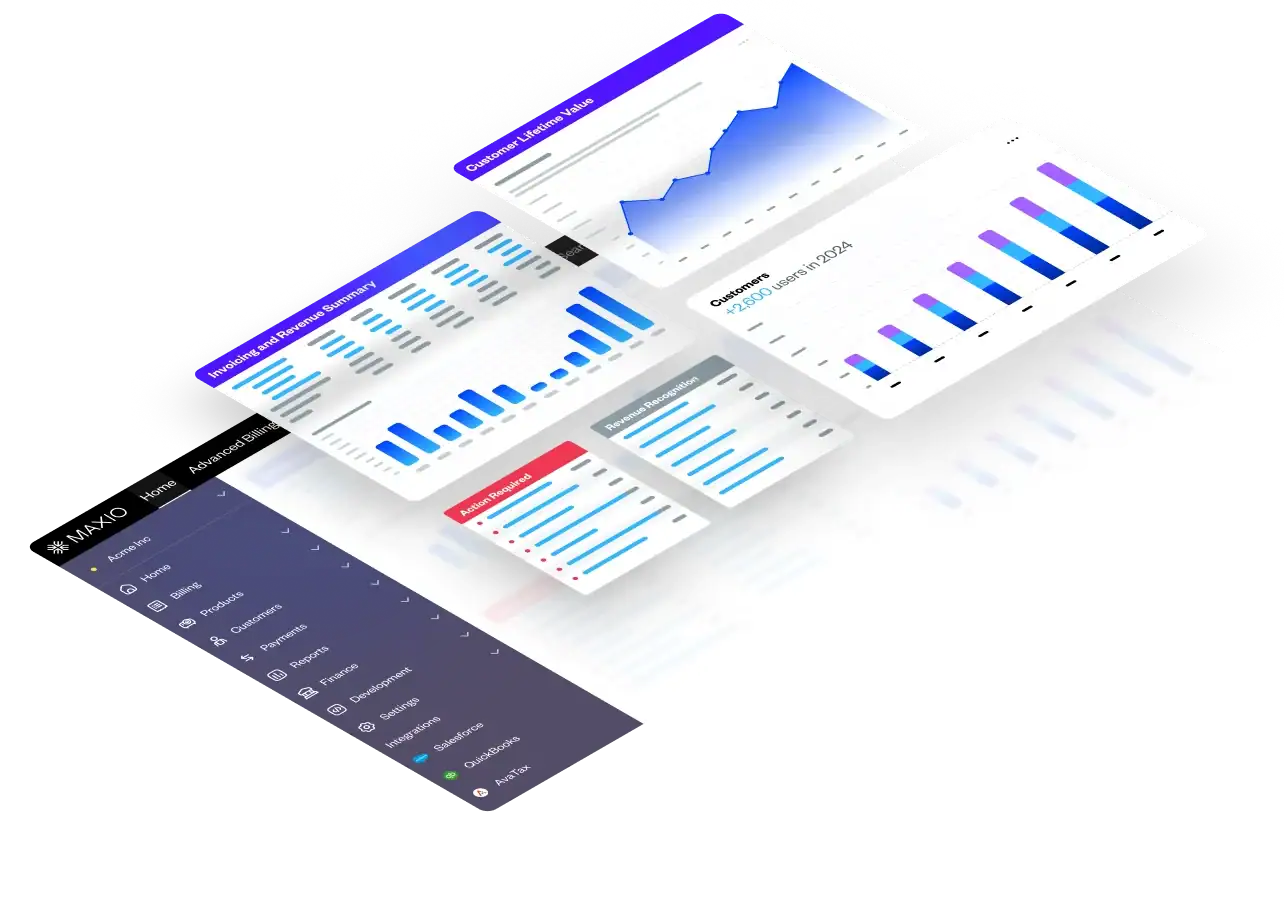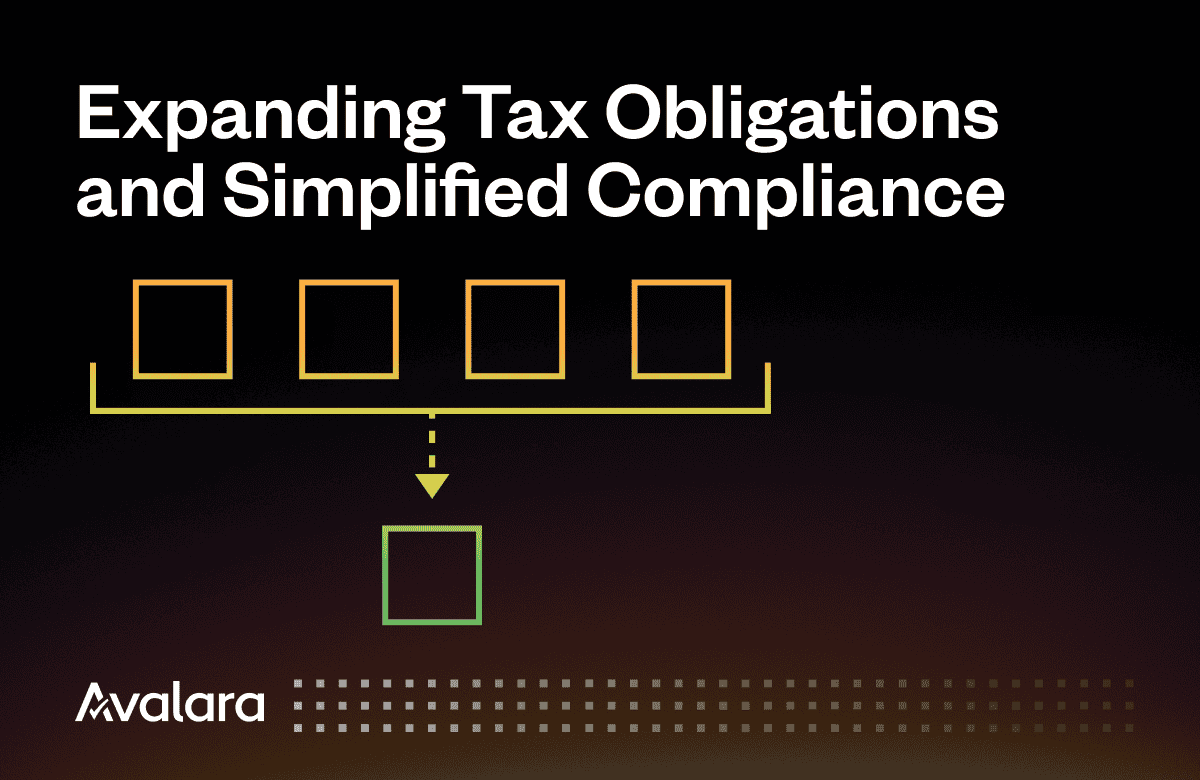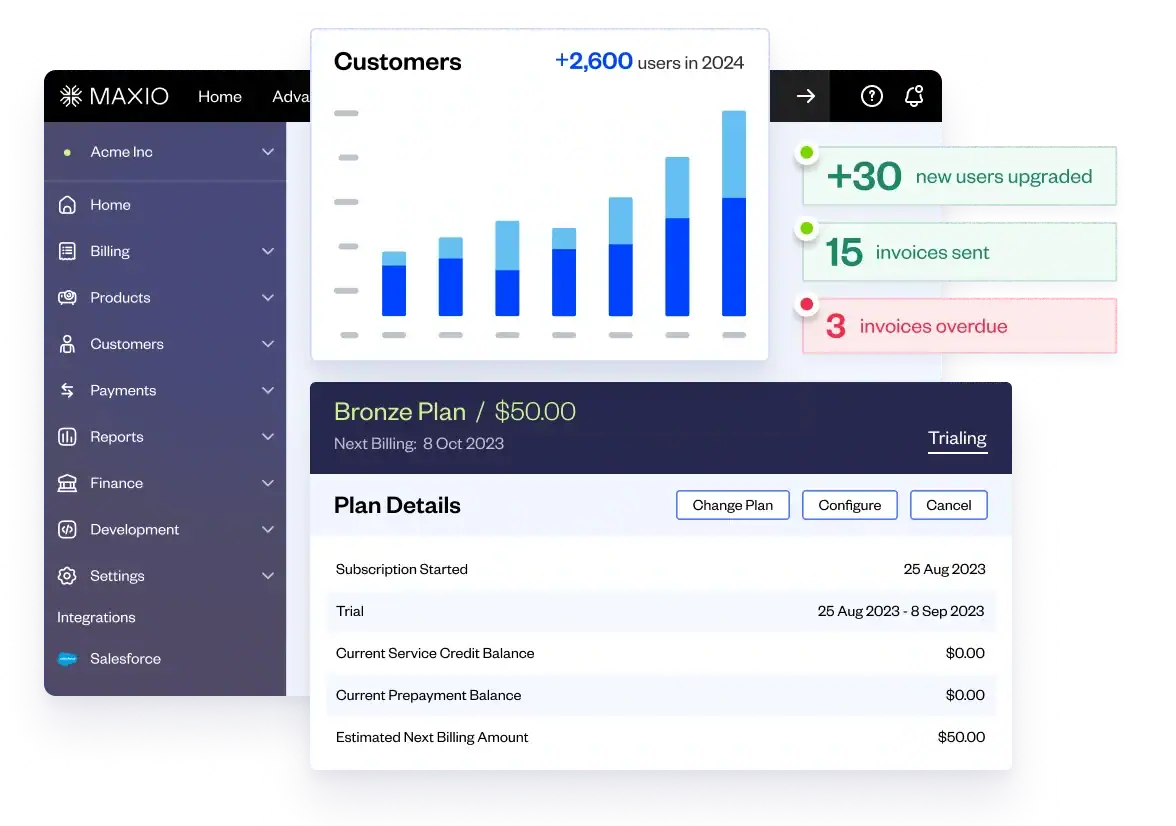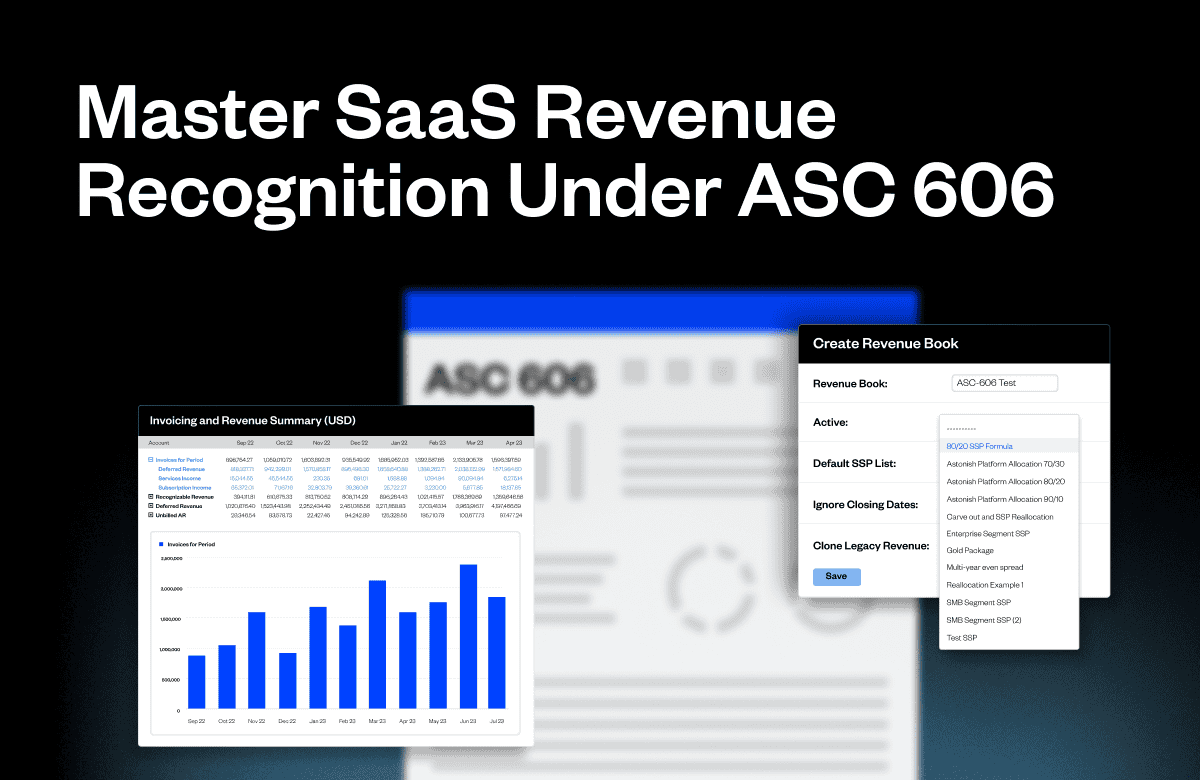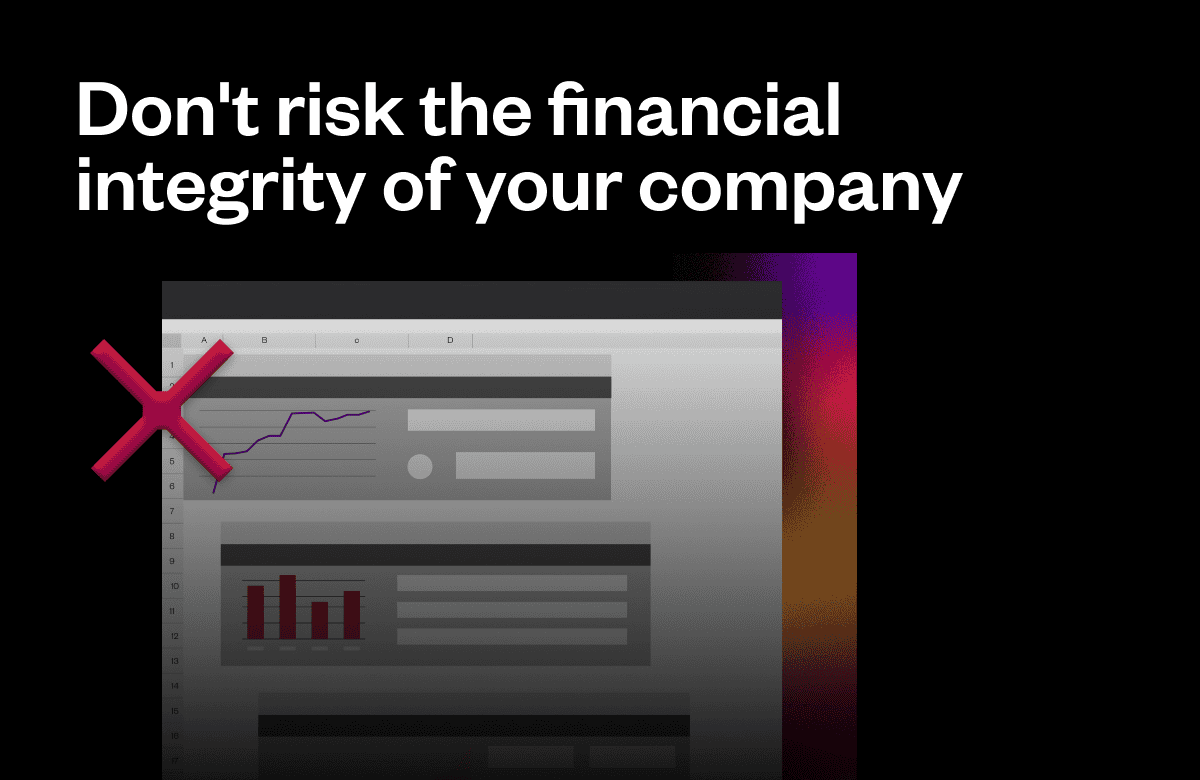This blog post is from Avalara, a Maxio partner and leader in sales tax automation solutions.
As the digital economy continues to expand, many SaaS companies are discovering that their business isn’t the only thing growing. Moving into new markets, reaching new customers, and launching new products can also drive a different kind of growth—additional sales tax obligations.
In an industry where change is constant, it’s easy for tax compliance to get lost in the shuffle. That’s a dangerous situation, particularly for companies that operate using a subscription model; compliance issues can compound quickly with repeated sales and transactions, and as new markets enter the mix, the challenges get even more complicated.
Fortunately, automation is as powerful for tax compliance as it is for the areas noted above. As SaaS companies navigate the key challenges of today’s evolving market, they will find that leveraging automated tax compliance solutions can bolster those efforts.
The complexity of compliance
Why is sales tax compliance so challenging for expanding businesses? It starts with nexus—a business’s connection to a particular jurisdiction that results in an obligation to collect sales tax (and all the other tasks that come with that). Nexus used to be simple, largely based on the business’s location or other physical operations, such as warehouses. Today, however, nexus can be based on where customers are located: “Economic nexus” laws in many states mean that a business that passes certain thresholds in a given jurisdiction, such as the amount of revenue or number of transactions, can be required to collect sales tax there.
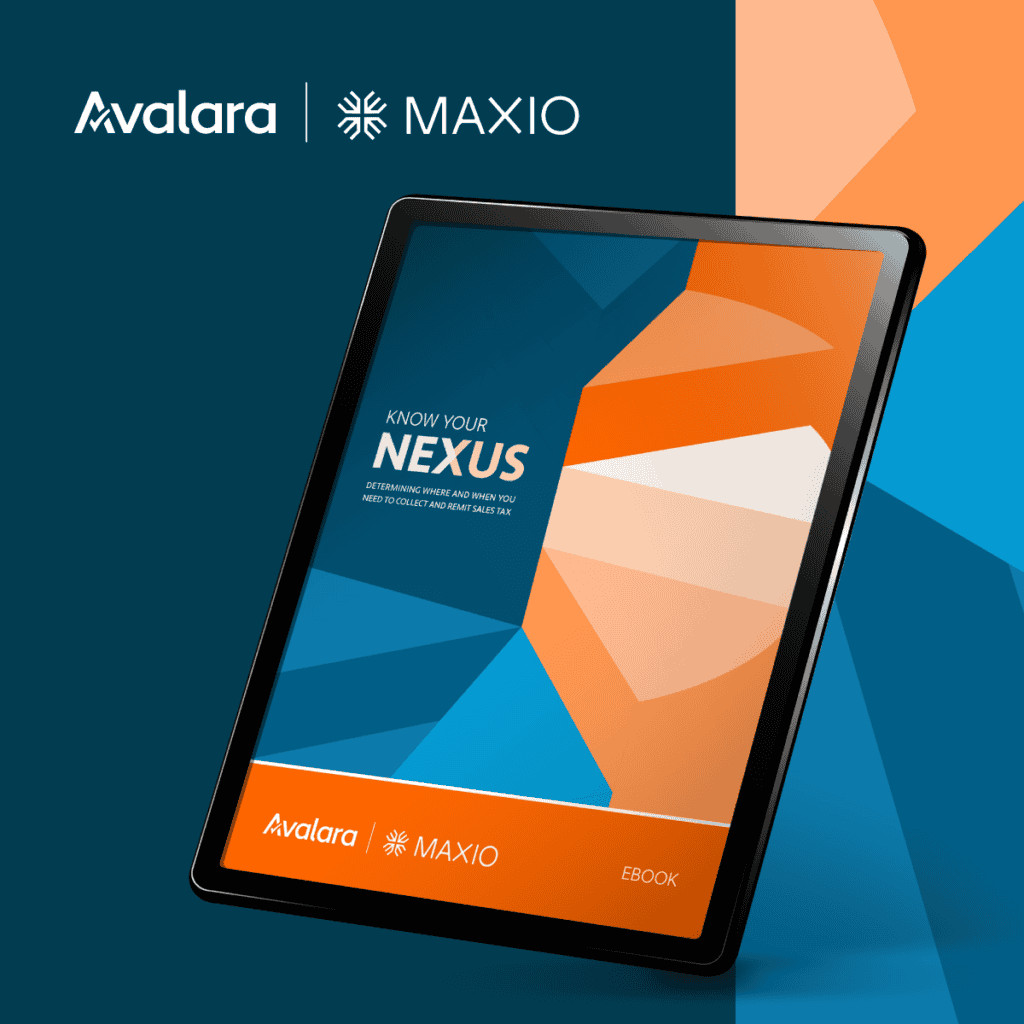
It gets even more daunting when you consider each state has different nexus guidelines. In addition to state-level sales tax, there are over 13,000 individual taxing jurisdictions in the U.S. (such as cities, counties, local, and special tax districts, each with its own tax rates and rules. Adding to the fun, these rates and rules change constantly, making keeping up with it all nearly impossible—at least for businesses that try to do it manually.
Unique challenges for B2B SaaS companies
Software companies also face complexities that other businesses don’t need to worry about.
Consider this scenario in the Managing Tax Compliance in a Digital Economy guide from Avalara:
Your company launches a new product and allows customers to buy it both as a physical disc and digital download. Support and installation fees are included or available with purchase, along with licenses. Depending on the exact nature of the software, any services provided, and the distribution method, this single transaction could be taxed at different rates depending on where it was purchased, who purchased it, and whether it’s taxable or exempt, or partially exempt based on state or even local jurisdiction rules.
Businesses that sell globally have to deal with economic nexus, too: Nearly 100 countries have laws that apply to foreign sellers. The rates and rules vary among them, like in U.S. states and cities.
This is just a taste of what SaaS businesses have to manage when it comes to tax compliance—it’s not feasible to cover every possible scenario in one blog post.
Automated tax compliance with Avalara and Maxio
Managing sales tax manually simply isn’t a viable option for SaaS businesses that want to grow and thrive—there are too many jurisdictions, too many rates and rules, and too many changes to stay on top of it all efficiently. But with Avalara AvaTax, it’s easy to automate compliance tasks right within Maxio.
AvaTax automatically calculates sales and use tax for activities powered by Maxio, including transactions and invoices. Maxio sends transaction data to AvaTax, and AvaTax sends back the tax total in real time. It’s streamlined and seamless, and because there’s a prebuilt connection, AvaTax implementation usually doesn’t even require IT support. With the Maxio + AvaTax integration you get:
- Time savings and reduction in manual errors
- Real-time tax calculations based on address validation and local tax codes
- Automatic updates for tax rate changes and compliance requirements
- Granular control to reflect unique tax situations
- Transfer of data to CRM tools and general ledger for consistency across applications
- Cost savings compared to hiring consultants or tax attorneys
A solution designed to evolve with the industry
SaaS companies’ sales tax compliance needs are vastly different—and more far-reaching—today than they were even a few short years ago. New economic nexus laws mean every new market, or even additional customers in an existing market, can bring new obligations. Different rules in different states (and countries) can make determining taxability a challenge in and of itself. And the rates and rules themselves are always subject to change.
The combination of Avalara AvaTax and Maxio gives SaaS companies a streamlined, automated solution to handle tax compliance challenges, enhance efficiency, and reduce risk—all delivered seamlessly in the same powerful platform they use to automate other key tasks.
If your business is looking to drive efficient growth, replace outdated processes, and free up resources that could be more impactful elsewhere, click here to learn more about the power of Maxio + Avalara.
